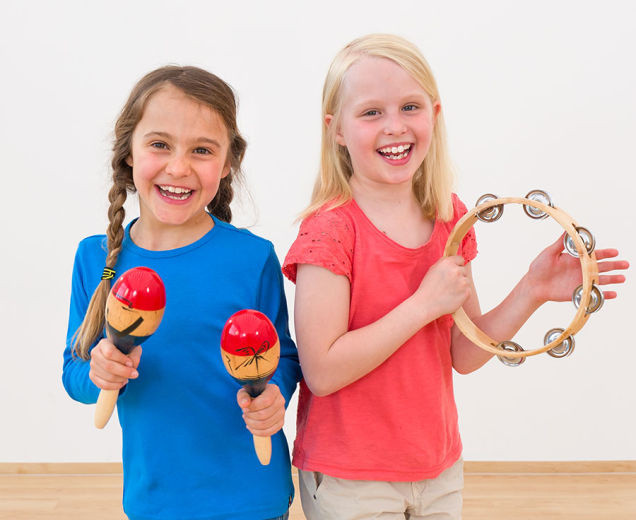Why Your Kids Should Learn An Instrument
Kids have free time. With a life free from responsibility, all of their needs accounted for, and a naturally carefree attitude, many kids end up using their time procrastinating and not making substantial achievements. At the same time, it’s difficult and unrealistic to expect children to have enough foresight to think very far into the future about how their daily time investments impact their lives.
Why Music?
For parents, the most successful methods of motivating their children must involve activities that are widely enjoyed and not seen as work. Music and sports are usually among the most common, as the Associated Board of the Royal Schools of Music (ABRSM) note that seven out of every ten children are currently learning and playing a musical instrument in the United Kingdom.
Music provides many children with a relatable and accessible way to productively spend their free time. Besides the cognitive benefits that learning music produces during development, committing to an instrument is another way of teaching children the values of discipline, perseverance, and the relationship between hard work and talent. Let’s take a closer look at each of the reasons for why you should consider having your child take up a musical instrument.
Developmental Benefits For Memory, Cognition, And More
How many times have you had trouble with memorizing definitions or complicated concepts that popped up in school work? Have you ever noticed that the same difficulties don’t seem to apply to your favorite songs, despite the relative length of song lyrics in comparison to the material you learn? This is a straightforward case of how the recall of auditory information is mediated by music, and ties in with the idea that there are memory and cognitive benefits for children that practice instruments.
The Journal of Music Education and Researchfound that a couple of years of piano instruction produced a brief period of superior spatial and general cognitive development for children in comparison to a control group. While research also seems to indicate that the link between adirect transfer between music skills into academic skills is weak, music still plays an integral role in enhancing the overall mental capabilities of children: “Music training seems to moderately enhance youngsters’ intelligence and memory.”
Of course, these benefits only represent the tip of the iceberg when it comes to the set of positives music education brings to children. Creativity is ahighly sought-after value in both children and adults, and music acts as a bridge that helps engage and transform the possibilities of your child’s imagination. Becoming fluent in an instrument can arouse your child’s latent sense of creativity and help them tap into their intuition.
In one report, the British Journal of Music Education highlights an incredibly strong link between the processes of musical composition and improvisation for children and enhanced creativity. The authors note an apparently causal relationship between music and greater creativity: “It was found that when composing in groups a) children use embodied processes to transform what they experience on diverse realms of their existence into musical ideas, and that b) while creating music, children engage in several improvisatory moments where new ideas emerge through the diverse ways they enact the surroundings where the activity is occurring.”
The interesting tidbit from this study is that music is framed as the primary variable responsible for arousing creative tendencies in children.
The Broad Educational Value of Music
Music doesn’t only produce cognitive and physical benefits, it also sets a foundation and direction for your children to develop a sense of values. Explaining abstract ideas such as talent, perseverance, and discipline is particularly difficult because these ideas are so often placed in opposition to freedom and a carefree pursuit of happiness. However, music can benefit children in that it can introduce real-world, practical values to children through personal experience.
Based on survey data from Angie’s List, the price of beginner’s piano lessons can run you anywhere from $30 to $60 per hour. If you search for answers on how long it takes to master the piano, you’ll get a variety of answers. However, most answers appear to indicate that you need at least a few years along with regular practice every day to get to a point where you can perform musical pieces with mastery and flair.
What this means is that music lessons are usually a huge time commitment for parents and even for children, since they must practice daily if they want to develop skills and benefit from lessons. But most children will find the process of sinking time into practicing piano enjoyable and they may discover the value of regular discipline as a means to reliably increasing their music skill over time.
Meanwhile, playing their instrument for competitions or recitals will allow your child to understand the spectrum of talent that exists for any skill. Along with the utility of discipline, these are among some of the most valuable lessons that music can impart to a child and should be key reasons for you to introduce your child to music.
by David Wither, via
